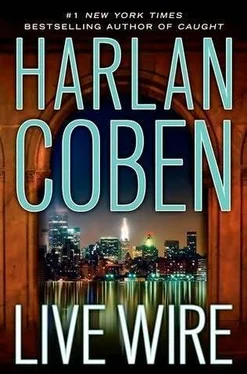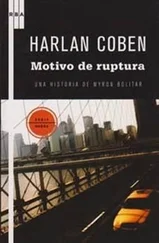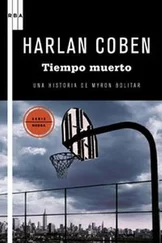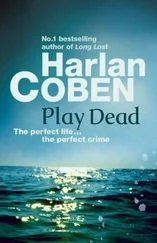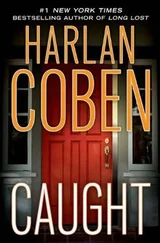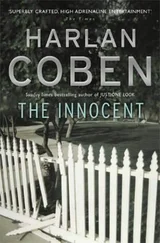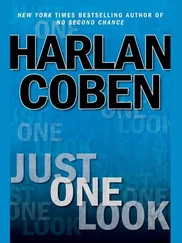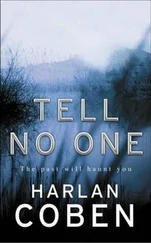“I have another idea,” Myron said. “Let’s check out Buzz.”
“Lex’s roadie?”
“He’s more than a roadie. Anyway, Buzz’s real name is Alex I. Khowaylo. Let’s try his credit cards and cell phone-he might have left his on.”
“Pardon me,” Big Cyndi said. “I have a call coming in.” Big Cyndi tapped her Bluetooth and put on her receptionist voice. “Yes, Charlie? Okay, yes, thank you.” Charlie, Myron knew, was the security guard downstairs. Big Cyndi tapped the Bluetooth off and said, “Michael Davis from Shears is coming up the elevator.”
“You got this?” Esperanza asked him.
Myron nodded. “Show him in.”
Shears, along with Gillette and Schick, dominate the razor blade market. Michael Davis was the VP in charge of marketing. Big Cyndi waited at the elevator for the new arrival. New arrivals often gasped when the elevator first opened and Big Cyndi was standing there. Not so with Michael. He barely broke stride, rushing ahead of Big Cyndi and directly into Myron’s office.
“We got a problem,” Michael said.
Myron spread his arms. “I’m all ears.”
“We’re taking Shear Delight Seven off the market in a month.”
Shear Delight Seven was a razor or, if you believe the Shear marketing department, the latest in “shaving innovation technology” featuring a “more ergonomic grip” (who has trouble holding a razor?), a “professional blade stabilizer” (Myron had no idea what that meant), “seven thinner, precision blades” (because other blades are fat and imprecise) and “micro-pulse power operation” (it vibrates).
Myron’s NFL All-Pro defensive back, Ricky “Smooth” Sules, was featured in the ad campaign. The tagline: “Get Twice as Smooth.” Myron didn’t really get it. In the TV commercial, Ricky shaves, smiling as though it is a sex act, says the Shear Delight Seven gives him the “closest, most comfortable shave possible,” and then a hot girl coos, “Oh, Smooth…,” and runs her hands along his cheeks. In short, it is the same shaving commercial all three companies have been running since 1968.
“Ricky and I were under the impression it was doing great.”
“Oh, it is,” Davis said. “Or it was. I mean, the response is through the roof.”
“So?”
“It works too well.”
Myron looked at him, waited for him to say more. When he didn’t, Myron said, “And that’s a problem how?”
“We sell razor blades.”
“I know.”
“So that’s how we make money. We don’t make it selling the actual razors. Heck, we practically give away the razors. We make it by selling you the refills-the razor blades.”
“Right.”
“So we need people to change blades at least, say, once a week. But the Shear Delights are working better than expected. We have reports of people going six to eight weeks on a single razor. We can’t have that.”
“You can’t have blades that work too well.”
“Exactly.”
“And because of that, you’re going to cancel the whole campaign?”
“What? No, of course not. We’ve built tremendous goodwill off the product. The consumer loves it. What we will do is start offering a new, improved product. The Shear Delight Seven Plus with a new comfort lubricant strip-for the best shave of your life. We feed it slowly into the market. Over time, we phase out the Shear Sevens in favor of the improved Plus.”
Myron tried not to sigh. “And-let me make sure I follow-the Plus blades won’t last as long as the regular blades.”
“But”-Davis held up a finger and smiled widely-“it gives the consumer a comfort strip. The comfort strip will make it the most comfortable shave possible. It is like a spa for your face.”
“A spa where the refills will have to be changed once a week rather than once a month.”
“It’s a wonderful product. Ricky will love it.”
Myron would make a moral stand here, but, well, nah. His job was to represent his client’s best interest, and in the case of endorsements, that meant getting said client the most money possible. Yes, there were always ethical questions to consider. Yes, he would tell Ricky exactly what was up with the Plus versus the regular model. But it was Ricky’s decision and there was little doubt if it meant more money, he would and should go for it. One could spend a lot of time bemoaning how this was clearly an attempt to con the public via advertising, but one would be hard-pressed to find any product or marketing campaign that did not do exactly that.
“So,” Myron said, “you want to hire Ricky to endorse the new product.”
“What do you mean, hire?” Davis looked deeply offended. “He’s already under contract.”
“But now you want him to redo the commercials. For the new Plus blades.”
“Well, yes, of course.”
“So I’m thinking,” Myron said, “that Ricky should get twenty percent more money for the new commercial.”
“Twenty percent more how?”
“Twenty percent over what you paid him to endorse the Shear Delight Seven.”
“What?” Davis shouted, hand to heart as though warding off a heart attack. “Are you kidding? It’s practically a reshoot of the first. Our lawyers say that under the contract, we can ask him to do the reshoot and not pay one cent more.”
“Your lawyers are wrong.”
“Come on. Let’s be reasonable. We are generous people, aren’t we? Because of that-even though, really, we shouldn’t-we can give him a ten percent bonus over what he’s already getting.”
“Not enough,” Myron said.
“You’re joking, right? I know you. You’re a funny guy, Myron. You’re being funny right now, right?”
“Ricky is happy with the razor as it is,” Myron said. “If you wish to have him endorse a whole new product with a whole new marketing campaign, he will certainly need to make more money.”
“More? Are you out of your mind?”
“He won Shear’s Stubble Destroyer’s Man of the Year. That upped his worth.”
“What?” Total outrage now. “We gave him that award!”
And so it goes.
Half an hour later, when Michael Davis left cursing under his breath, Esperanza came into Myron’s office.
“I found Lex’s friend Buzz.”
Adiona Island is exactly five miles wide, exactly two miles long, and, as Win once put it, the “epicenter of the WASP.” It is located a scant four miles off the coast of Massachusetts. According to the Census Bureau, 211 people inhabited the island year-round. That number grew-it was hard to say by how much but it was at least several fold-during the summer months as the blue bloods from Connecticut, Philadelphia, and New York flocked in by jet or ferry. Recently, the Adiona Golf Course was named one of the top twenty-five courses by Golf Magazine . This upset rather than pleased the club members because Adiona Island was their private world. They don’t want you to visit or even know about the island. Yes, there was a “public” ferry, but the ferry was small, the departure schedule hard to figure out, and if you somehow managed to get there, the beaches and pretty much all land on the island were private and guarded. There was only one restaurant on Adiona Island, the Teapot Lodge, and it was more of a drinking pub than an eatery. There was one food market, one general store, one church. There were no hotels or inns or anyplace to stay. The mansions, most with cute names like Tippy’s Cottage or The Waterbury or Triangle House, were both spectacular and understated. If you wanted to buy one, you could-this was a free country-but you wouldn’t be welcomed, wouldn’t be allowed to join the “club,” wouldn’t be allowed on the tennis courts or the beaches and you would be discouraged from patronizing the Teapot Lodge. You had to be invited onto this private enclave or agree to go it alone as a social outcast-and pretty much no one chose to go it alone. The island was kept secure less by real guards and more with Old-World scowls of disapproval.
Читать дальше
